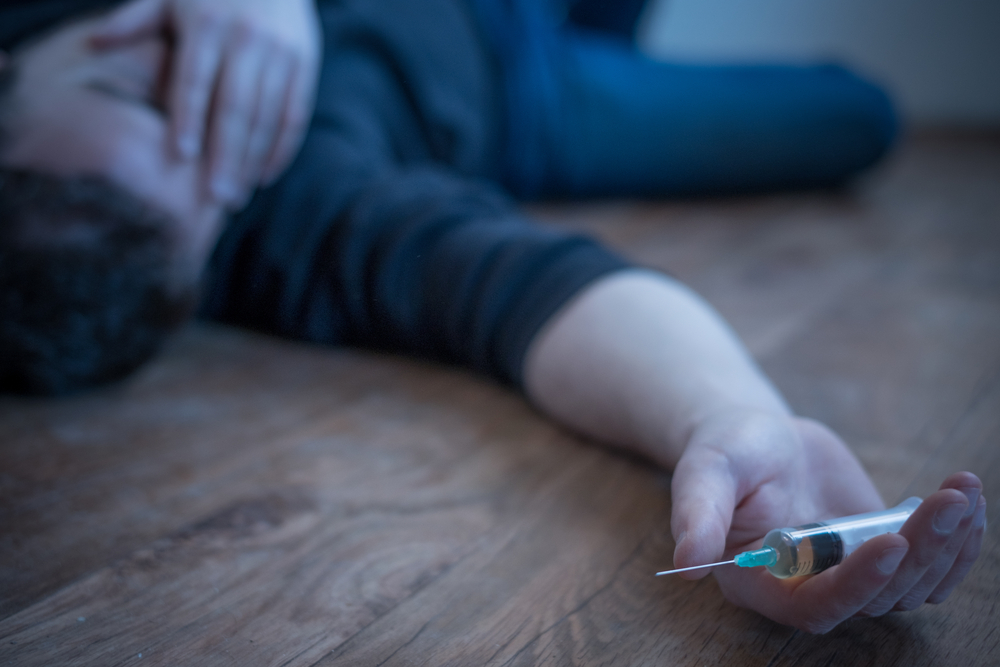
Contributing to over 8,000 overdose deaths each year in the U.S., heroin is one of the deadliest substances abused by Americans. For those who suffer from addiction to heroin, the safest way to get off the drug is to undergo a detox; a process in which a patient withdraws from heroin under the careful supervision of medical professionals, often with the help of medications and other forms of treatment.
The Real Duration of a Heroin Detox
Unfortunately, heroin withdrawal can be an extremely uncomfortable process for patients, making it difficult, and even somewhat dangerous for someone to attempt on their own. Unlike some other opiates, heroin is fast-acting, meaning that it both enters and leaves the bloodstream quickly. That means that while detox symptoms are relatively short-lived, they can also be very intense.
Heroin withdrawal symptoms may begin about 6-12 hours after a patient has had their last dose of the drug. These symptoms often peak within 2-3 days but may last between 5-10 days overall, depending on the intensity of an individual patient’s addiction.
Heroin withdrawal symptoms and side effects may often include:
- Anxiety, panic attacks, and depression
- Fever, chills
- Insomnia
- Nausea, vomiting, and stomach cramps
- Muscle tension, joint pain
- Diarrhea
- Increase in blood pressure and heart rate
The Importance of a Detox
Detoxes are beneficial for a variety of reasons– including the fact the detox process is usually much more comfortable than a do-it-yourself detox at home. The added comfort of detox can often help a patient avoid the worst of heroin detox side effects like anxiety and depression, making it more likely that they can avoid a dangerous relapse.
A detox is also an excellent choice for anyone suffering from pre-existing medical conditions; especially patients with heart or lung problems. Throughout the entire detox process, medical professionals monitor a patient’s blood pressure, heart rate, breathing, temperature, and other vital signs, which can help identify and prevent or treat any medical problems before they cause serious injury to a patient.
Types of Heroin Addiction Treatment and Heroin Detoxes
While anyone who is attempting to quit heroin is likely to suffer some or all of the heroin withdrawal symptoms mentioned above, that doesn’t mean that the same style of treatment is right for everyone. The right type of heroin detox and/or heroin rehab program will depend on a variety of factors, including the individual’s needs and preferences, budget and insurance plan/type, family and career obligations, and other personal considerations.
Different Types of Heroin Addiction Treatment Include:
- Inpatient Treatment
- Partial Hospitalization
- Intensive Outpatient Treatment
- Outpatient Treatment
Inpatient Treatment
After detox has been completed and a patient’s body is clear of alcohol and drugs, the best option for many addiction patients is an inpatient heroin addiction treatment program. This type of program will involve a patient living at a drug treatment facility from anywhere between several weeks and several months, depending on the extent of the patient’s individual needs.
Partial Hospitalization
Partial hospitalization is a type of heroin addiction treatment that involves a patient making visits to a drug treatment center, typically at least five days per week.
Partial hospitalization can be an effective option for those who have already completed detox and are looking for a heroin rehab program that allows them more time to take care of family and professional obligations. It can also be the next step in treatment after a patient has participated in an inpatient treatment program and is looking to complete the next stage in the healing process.
Intensive Outpatient Treatment
After undergoing detox and participating in an inpatient and/or partial hospitalization heroin addiction treatment program, the next step is often committing to an intensive outpatient treatment program.
Much like a partial hospitalization treatment program, intensive outpatient treatment programs allow a patient to live at home– giving them the time to fulfill a variety of professional and family obligations while undergoing treatment.
However, unlike partial hospitalization programs, intensive outpatient treatment programs usually only require 10-12 hours a week, making them easier and more affordable for many addiction patients.
Outpatient Treatment
Outpatient treatment programs are the least time-intensive type of heroin addiction treatment programs.
A patient may choose to participate in an outpatient treatment program any time after completing a detox, however, this type of program is most commonly started after a patient completes an inpatient or intensive outpatient program and already has a strong commitment to their sobriety.
Outpatient treatment programs are the most flexible and the most affordable; a patient may come in as much as every day or as little as once or twice a week. However, considering that a patient will spend far less time in heroin rehab during outpatient treatment, it’s essential that they have a strong support network and are ready for the greater independence before beginning any outpatient program.
Begin Your Recovery Today at the Restore Center!
If you or someone you love has a heroin problem, now is the best time to get heroin addiction treatment.
At the Restore Center, we know firsthand how heroin can negatively affect families, careers, and lives– and we want to empower addiction sufferers to take back control of their health and their future. We’re proud to have helped so many people change their lives for the better– finally allowing them to live up to their full potential and make the most of every moment with the people that truly count. Visit our addiction treatment center in Calabasas at 6918 Owensmouth Ave Canoga Park, CA 91303. 24/7 Admissions (818) 722-9019. On-Site Contact (818) 806-3914.
Sources:












